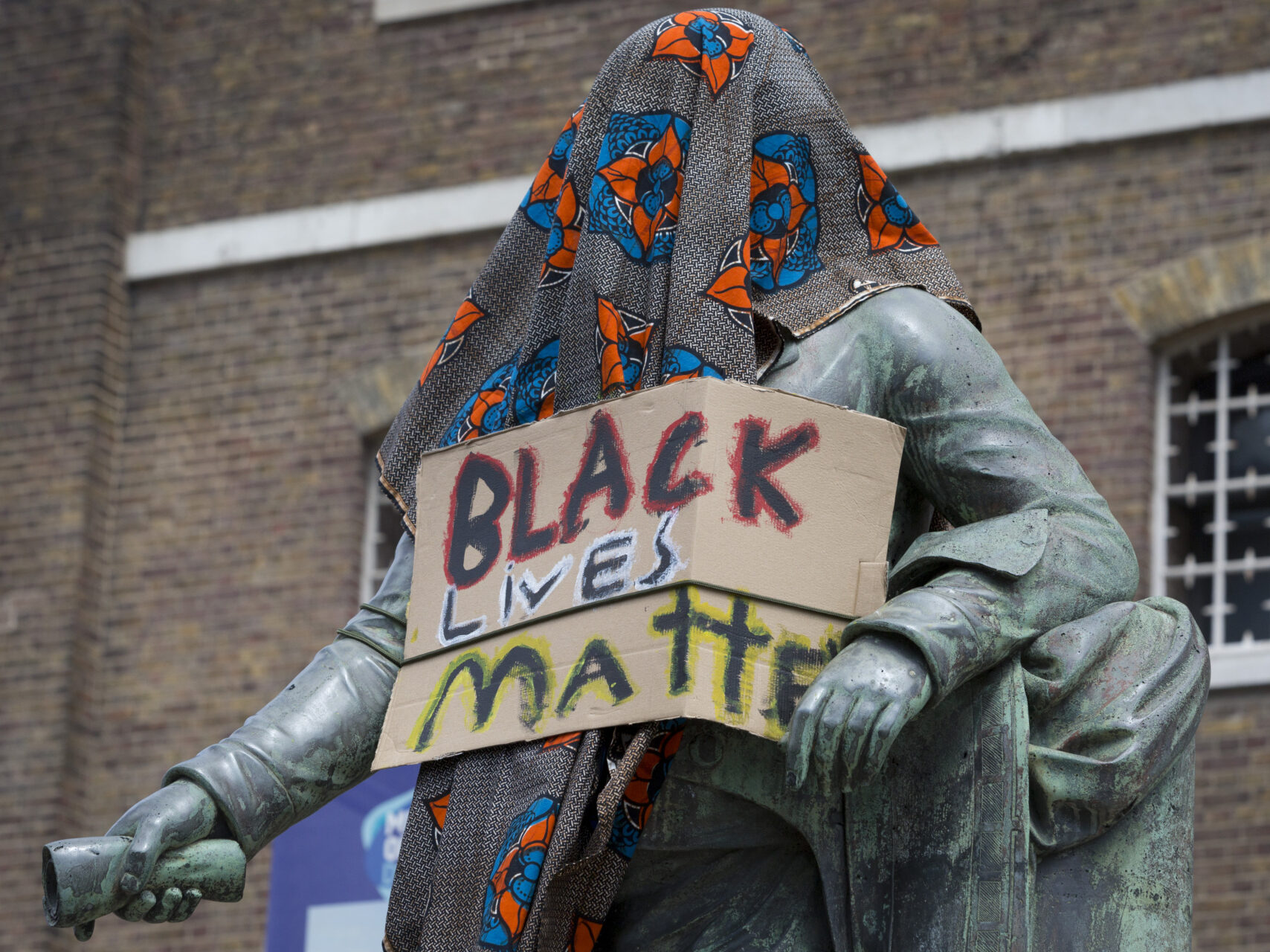Activists are happy attacking easy targets like old statues but should start fighting modern slavery instead, an ex-police officer has said.
Progressive activists need to stop attacking statues with various links to a slave trade that ended two hundred years ago and start taking action against real-life, modern-day trafficking — also known as slavery — a senior ex-police officer has said.
Tom Wood, who formerly served as a deputy chief constable of Lothian and Borders Police, made the claim in the wake of the revelation that worldf-famous Olympian Mo Farah was trafficked to the UK as a child and forced to work as a domestic servant.
In an opinion piece published in The Scotsman, Wood emphasised that it was only through the perceptive actions of a school teacher that Farah was rescued, a level of awareness or care not often mirrored by anti-statue activists.
The former officer also referenced the case of a woman working effectively as a “defacto slave” within the sex trade being rescued by two attentive police officers, who arrested her captor after being called to the flat she was being held at after being called out to deal with a domestic incident.
“A routine piece of police work, done well, saved these women from slavery, and the officers concerned probably never knew how important their work had been,” he wrote. “In both these cases, the vigilance and decisive action of ordinary people freed the victims of real-world captivity.”
This attentiveness, Wood argued, stands in stark contrast to the actions of statue vandals, who the former officer argues do little to actually help the pressing issue of modern slavery.
“Fixated by the Atlantic slave trade that ended 200 years ago, they pull down statues and daub paint. It’s easy, but changes nothing,” he said.
“Confronting modern-day slavery is a lot harder and requires vigilance and action from us all,” he continued. ” We must ask ourselves how the cheap clothes we buy are made, where the staff of nail bars come from and how much they are paid. Some sacrifices may be required.
“Turning up at a demo isn’t enough.”
The issue of human trafficking has once again come to the fore in recent times, with the ongoing refugee and migrant crisis prompting concern that many trying to flee the Russian invasion in the east might find themselves falling victim to trafficking.
While authorities in Britain have tried to keep the influx of Ukrainian refugees into the country under control, its open borders obsessed neighbour Ireland has been nowhere near as careful, prompting concern from officials in Britain due to the fact that the two countries exist within a common travel area.
Having been already ranked one of the worst countries in Western Europe for human trafficking — even at one point being put on a watchlist by the United States — authorities in Ireland have already detected at least two suspected cases of Ukrainian refugees being trafficked into the country.
The country’s illegal migrant amnesty-loving Justice Minister, Helen McEntee expressed a number of platitudes about the current situation, saying that trafficking had “no place” in Irish society and that the government is taking a “victim-centred policy approach”.
However, the head of the Irish Human Rights and Equality Commission emphasised that the country was starting from a “very low base” and that “key preconditions for an effective human trafficking response remain unfulfilled”.
